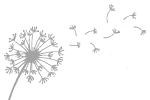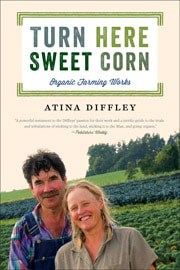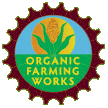The Impermanence of Eden – The Chronicle of Higher Education
Scott Carlson, senior reporter of the Chronicle of Higher Education, has written a very personal and powerful book review of Turn Here Sweet Corn that frames the way each of us is connected to the story. Scott grew up living adjacent to the original Diffley farm He roamed and played on the land and worked for Martin as a teenager. As a child he was part of the first wave of housing as the market-garden township was developed into the city of Eagan.
He gets Turn Here Sweet Corn at the deepest level. The searching for permanence, and the relationships between events and groups and species.
The Impermanence of Eden, by Scott Carlson
Many journalists go into their line of work wanting to tell stories that will help fix the world, make something broken whole again. I have been writing about the environment, agriculture, city planning, and sprawl for much of my career—and I know that I, too, am trying to restore a lost world.
I grew up in the 1970s and 80s in Eagan, Minn., near an unusual farmer who worked a remarkable piece of land. The young Martin Diffley grew an array of vegetables on fields tucked amid grassy, protective hills and dense woods, a landscape much different from the deforested, monoculture farms so common in the region. Diffley established his Gardens of Eagan, one of the first organic farms in the Midwest, on land that had been owned by the Diffley family since 1855; pesticides and other common agricultural chemicals had never been used on it. But its edenic traits could not save it. In the late 1980s, as the Twin Cities oozed into the countryside around it, the forests were bulldozed and the hills flattened to make way for unimaginative houses in various shades of beige.
The story behind the loss of that place forms the broken heart of Turn Here Sweet Corn (University of Minnesota Press), a new memoir by Atina Diffley, Martin’s wife. The book is billed as a gardening guide, love story, business handbook, and legal thriller, but it is really a wrenching tale of a common yet private tragedy: the way development pressures push farming families off the land, and what happens to those families during and afterward.
Atina Diffley comes from Midwestern farming stock I recognize—a family in which strong women and children hold the farm together and get the work done, while the men escape. After a few years of idealism, a failed marriage, and some missteps, she settles down with Martin in Eagan as a single mom, falling in love with not only the man but also the land. Its places, named by the family, give it almost a mythical quality: the Plains of Abraham, the Big Oak Woods, Treasure Hill, the Crown Jewel, and the Bridge Ravine, where 10-year-old Martin once chopped down a tree to span the ravine. Martin and Atina lie in the grass while he talks about Eagan’s old-timers and their history there.
“I had always thought the expression ‘good connections’ meant knowing people in high places,” Atina writes, “but it’s the clerk in the grocery store, the farmer down the road with manure, the teller at the bank. This is what creates a secure community.” . . . Read the Article.

Read Atina Diffley's Blog: What Is A Farm?
Subscribe By Email. It’s Free
Enter your email address:
Worshops & Consulting
Visit Organic Farming Works LLC for Workshops and Coaching/Consulting with Atina and Martin Diffley.


